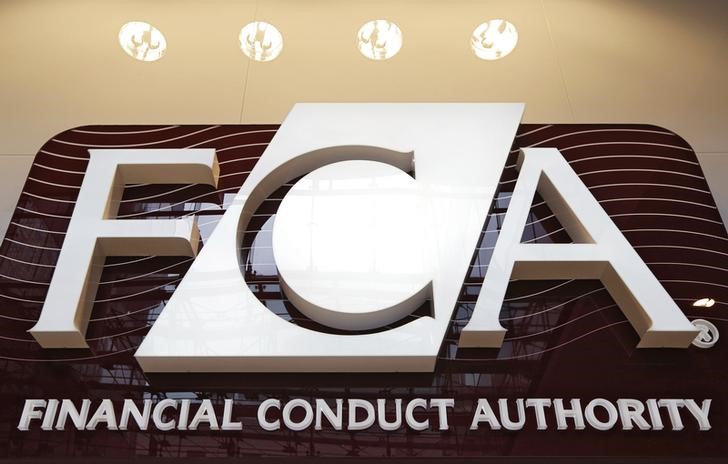 © Reuters. FILE PHOTO – The logo of the new Financial Conduct Authority is seen at the agency’s headquarters in the Canary Wharf business district of London
© Reuters. FILE PHOTO – The logo of the new Financial Conduct Authority is seen at the agency’s headquarters in the Canary Wharf business district of LondonBy Huw Jones
LONDON (Reuters) – Britain should not force its regulators into trade-offs between market stability and helping London remain a leading global financial center after the country leaves the European Union, a top regulator said on Tuesday.
Charles Randell, who becomes chair of the Financial Conduct Authority (FCA) in April, told lawmakers the watchdog’s predecessor agency floundered after being forced to balance market soundness with maintaining competitiveness.
“We ended up with a system called lite-touch, and I am absolutely determined we don’t repeat that mistake,” Randell told parliament’s Treasury Select Committee.
If markets are kept safe and well regulated, a globally competitive financial center will follow, said Randell, a former corporate lawyer who advised the government on banking bailouts during the financial crisis.
Pro-Brexit lawmakers want to ditch some EU financial rules, to help keep the City of London financial district globally competitive.
But helping Britain’s financial market to navigate the country’s departure from the EU in March next year will be a huge technocratic and draining task, and “regulatory overload” must be avoided.
“My plea would be that the FCA is allowed a period of stability once it’s achieved that task and breathes out a loud sigh of relief before suggestions are made that major changes in regulatory structure should follow,” Randell said. “We need to get this ball over the line.”
Brussels has told Britain it must comply with all EU financial rules during any transition period after March 2019 and new trading terms.
Britain’s Brexit minister, David Davis, on Tuesday dismissed fears that Britain would use its departure from the EU to cut regulation to attract global businesses.
FILM SCHEME ERROR
The Treasury Select Committee published letters disclosing that Randell had put money into the Ingenious Film Partners 2 LLP between 2006 and 2011. It made use of tax breaks to promote film productions, but it was challenged by the tax authorities.
Randell said he repaid 114,000 pounds ($159,645.60) plus interest after an “error of judgment”.
Randell, who will step down as a board member of the Bank of England’s Prudential (LON:) Regulation Committee before taking up his new post, said the scheme was recommended by his financial advisor, and that he had been assured at the time that the tax authorities approved it.
“I probably did not ask the right questions,” Randell said.
Randell spoke of a gap between what the public expects of the FCA, which regulates 56,000 firms, and what the watchdog can deliver in a timely way.
The committee on Tuesday published a report the FCA had commissioned into alleged mistreatment by Royal Bank of Scotland (L:) of its small business customers.
It lost patience with the FCA, which had refused to publish it after saying it was required by law to allow those criticized in it to have a right of reply.
The watchdog was also accused in a parliamentary report last week for being too slow to protect steelworkers from being ripped off over their pensions.
Randell said his first priority will be to look at whether the watchdog can move faster in such instances to avoid any perception of justice being delayed.
“I want to conduct my own assessment … It may be there isn’t a silver bullet,” Randell said. “The FCA can’t be everywhere all the time.”
Source: Investing.com




























